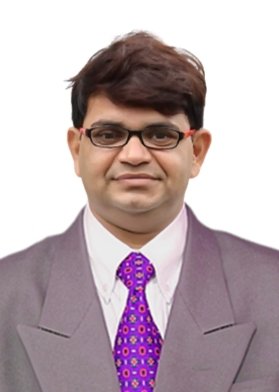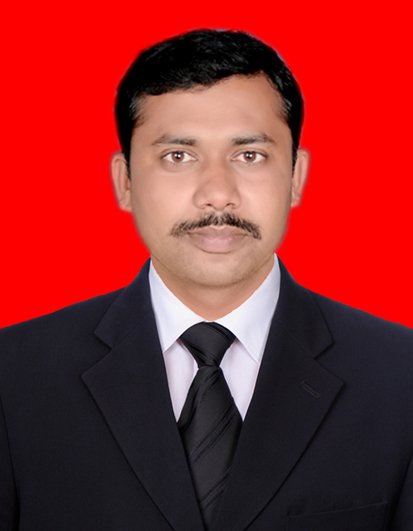About Department
The Department of Chemistry was established in the year 1992-93. College has started M.Sc. in Organic Chemistry in the year 2007-08. Research center was started from the academic year 2014-15. The department has well qualified, energetic teaching and non-teaching staff. Laboratory is well equipped with research Instrument like IR, UV, Gouy Balance, Microwave Oven and all necessary instruments, glassware’s to conduct all B.Sc., and M.Sc. practical’s and research activities. Dr. Bhosale V.N., Dr. Magar B.K , Dr. Magare B.K and Dr. Sakhare D.T. are recognized P.G. teacher & Research guide. The 16 research students are working under the guidance of these faculties.
Importance of the subject
Chemistry is important to everyday life,
because it provides medicine. The food we consume each day comes directly from
chemical processes. It helps meet basic needs such as clothing, energy and
shelter, and contributes to the improvement of air, water and soil
quality.
The scope of Chemistry in
Industry plays an important and useful role towards the
development and growth of a number of industries. This includes industries like
glass, cement, paper, textile, leather, dye, petroleum, sugar,
plastics, Pharmaceuticals.
Chemistry is also important for the environment.
When you are aware of the harmful effects of the gases like carbon dioxide and
methane as a result of the greenhouse effect, you can easily carve out the
solutions for the reduction of its effects on the environment. If you possess a
minimum knowledge of the importance and use of chemistry you can help in saving
the environment to a large extent.
Understanding the basic chemistry is essential
for all, but specializing in chemistry, making a career out of the subject is
also interesting. Plenty of chemistry related high paying jobs are available
today. All the medical students, physicists, geologists, nutritionists study
chemistry.
The main employers
of chemistry graduates are in the chemical and related
industries, such as: agrochemicals, metallurgical, petrochemicals,
pharmaceuticals, plastics and polymers toiletries, Forensic Chemist. , Biochemistry, biotechnology, Water quality chemist and Cosmetic
etc.
Scope for Higher Studies after B.Sc Chemistry.
After
pursuing a B.Sc Chemistry candidates can go for different job
opportunities. But we advise students to first pursue M.Sc degree in Chemistry . After post-graduation, they can appear in various exams like GATE JRF, TIFR, CSIR NET JRF etc.,
depending upon students field of study and choice of the universities and colleges.
If students are interested in applying for the Integrated PhD
courses right after graduation, then they can go for exams like IIT JAM Exam,
GATE etc. to get into the best Ph.D universities in India.
Program Outcomes, Program
Specific Outcomes and Course Outcomes
Programme
Outcomes: B. Sc Chemistry
|
Department of
Chemistry
|
After
successful completion of three year degree program in Chemistry a
student should
be able to;
|
|
Programme
Outcomes
|
PO-1.
Demonstrate, solve and an understanding of major concepts in all
disciplines of
chemistry.
PO-2. Solve
the problem and also think methodically, independently and
draw a logical
conclusion.
PO-3. Employ
critical thinking and the scientific knowledge to design, carry
Out, record
and analyze the results of chemical reactions.
PO-4. Create
an awareness of the impact of chemistry on the environment,
Society and
development outside the scientific community.
PO-6. To
inculcate the scientific temperament in the students and outside
the scientific
community.
|
|
Programme
Specific
Outcomes
|
PSO-1. Gain
the knowledge of Chemistry through theory and practical’s.
PSO-2. To
explain nomenclature, stereochemistry, structures, reactivity, NMR, PMR
spectroscopy and mechanism of the chemical reactions.
PSO-3.
Identify chemical formulae and solve numerical problems
PSO-5. Know
structure-activity relationship.
PSO-6.
Understand good laboratory practices and safety.
PSO-8.
Make aware and handle the instruments/equipments.
PSO-9.
Understand Heterocylic compounds,
Photochemistry, Aramaticity, kinetics
and Catalysis, radioactivity.
|
Course Outcomes B. Sc Chemistry
Semester-I
|
Course
Outcomes
|
Outcomes
After
completion of these courses’ students should be able to;
|
|
Paper-I
Inorganic Chemistry
|
CO1. Understand the shapes of atomic orbital’s
CO2.Learn electronic configuration of elements.
CO3.To study periodic prosperities and its trends
in periodic table.
CO4. Study the diagonal relationship of S Block
elements.
CO5. To understand comparative study of P blocks
elements.
|
|
Paper –II
Organic
Chemistry
|
CO1.To study Structure and bonding in organic
compounds.
CO2. To understand types and mechanism of organic
reactions.
CO3. To study stereochemistry of organic
compounds.
CO4. To understand R, S and E, Z nomenclature.
CO5.Lear about alkaens, alkenes methods of
formation and reactions.
CO6. To understand Aramaticity of organic
compounds.
CO7.To study polyhalogen compounds synthesis and
reactions.
|
|
Paper III
Lab
course Course-I
|
CO1. To prepare 0.1 N solutions and its Standardization
by given solution.
CO2. To identify two acidic and two basic radicals
from the mixture.
CO3. To
determine equivalent weight of mg, Viscosity, surface tension.
CO4. To study hydrolysis reaction.
CO5. Study of Lambert –Beers Law using spectrophotometer.
|
|
Semester -II
|
|
Paper-IV
Physical
Chemistry
|
CO-1. To study mathematical concepts: Logarithmic
relations and differentiation functions.
CO-2. To understands kinetic gas equation and
deduction of various gas laws.
CO-3 To study chemical kinetics and Catalysis.
CO-4. Solve
the numerical problems based on Rate constant
CO-5. To understand difference between solids,
liquids and gases.
CO-6. Understand
the classification and structure of nematic and cholesterol phases.
CO7. Learn laws of crystallography.
CO8. To study Colloids and its Classification.
|
|
Paper-V
Inorganic
Chemistry
|
CO1. To understand properties of noble gases.
CO2. Describe valence bond theory and its limitations.
CO3. Describe the VSEPR theory and MO theory.
CO4. Predict the directional properties of covalent bonds
CO5.To understands radioactivity and properties of α, β, γ.
CO6. To study of theory of volumetric analysis.
|
|
Paper-VI
Lab Course-II
|
CO1. To identify organic compounds.
CO2. To estimate phenol and basicity, molecular
weight of organic compounds.
|
Course Outcomes B. Sc Chemistry
Semester-III
|
Course
Outcomes
|
Outcomes
After
completion of these courses students should be able to;
|
|
Paper
VII
Organic
Chemistry
|
CO1.
Study
the preparation of alcohols, phenols, aldehydes, ketones, carboxylic acids, Nitroalkane,
amines and their chemical properties with mechanism.
|
|
Paper
VIII
Physical
Chemistry
|
CO1.To study
thermodynamic terms and solve numerical on work done
CO2.To understands
first law of thermodynamics, capacity, calculation of W, q, Du and dH for
ideal gas expansion.
CO3.To learn
second law of thermodynamics concept of entropy,
And Helmholtz
function.
CO4. To study
equilibrium constant and free energy.
CO5.To study Claudius
Clapeyron equation and its application.
|
|
Paper IX
Lab
course III (Physical/Inorganic)
|
CO1. To
determine critical temperature of phenol water system.
CO2.To determines
solubility of benzoic acid, Heat of naturalization, Partition coefficient, and
equilibrium constant.
CO3.Detremine
molecular mass of polymer.
CO4.To
estimate Zn, Mn, Ba and Al gravimetrically.
CO5.To
estimate Zink, Nickel, Copper and Lead by EDTA using different indicators.
|
|
Semester –IV
|
|
Paper –X
Inorganic Chemistry
|
CO1. To study
chemistry of elements of first transition series.
CO2. To learn
about co-ordination compounds.
CO3.To study
of lanthanides and actinides elements, occurrence and properties.
CO4. To study
Arrhenius, Bronsted-Lawry, lux-Flood, solvent and Lewis acid bases concepts.
CO5. To study
Non aqueous solvents: Types, properties and reactions.
|
|
Paper-XI
Physical
Chemistry
|
CO1.To derives
phase rule equation.
CO2.Tio study
one and two components system.
CO3.To understands
Raoults Law and Henry’s law.
CO4.To study
ideal and non-ideal system and partially miscible liquids.
CO5. To study
specific and equivalent conductance and numerical problems.
CO6.To study
Kohlrausch’s law and its applications.
CO7.To study
conductometric titration types and its advantages.
CO8. To
understand tapes of reversible electrodes.
CO9.To
determine pH,pKa by potentiometric method.
CO10. To
understand Corrosion and its types.
|
|
Paper-XII
Lab
Course-IV
Physical
Organic
|
CO1. To
determine normality and strength of HCL,Acetic acid using NaOH solution conductmetrically
/pH-metrically.
CO2. To verify
Lambert-Beers Law.
CO3.To
estimate amount of sugar and determine RI of ethanol water system.
CO4.To
prepares derivative, its crystallization and physical constant of organic
compounds.
CO5.To
estimate amount of Nitro group, glucose, ester and amides.
|
|
Semester-V
|
|
Paper-XIII
Physical
Chemistry
|
CO1.To study
Bohr’s models of hydrogen atom, Schrodinger equation.
CO2.To
understand basic feature of different spectrophotometer. |





